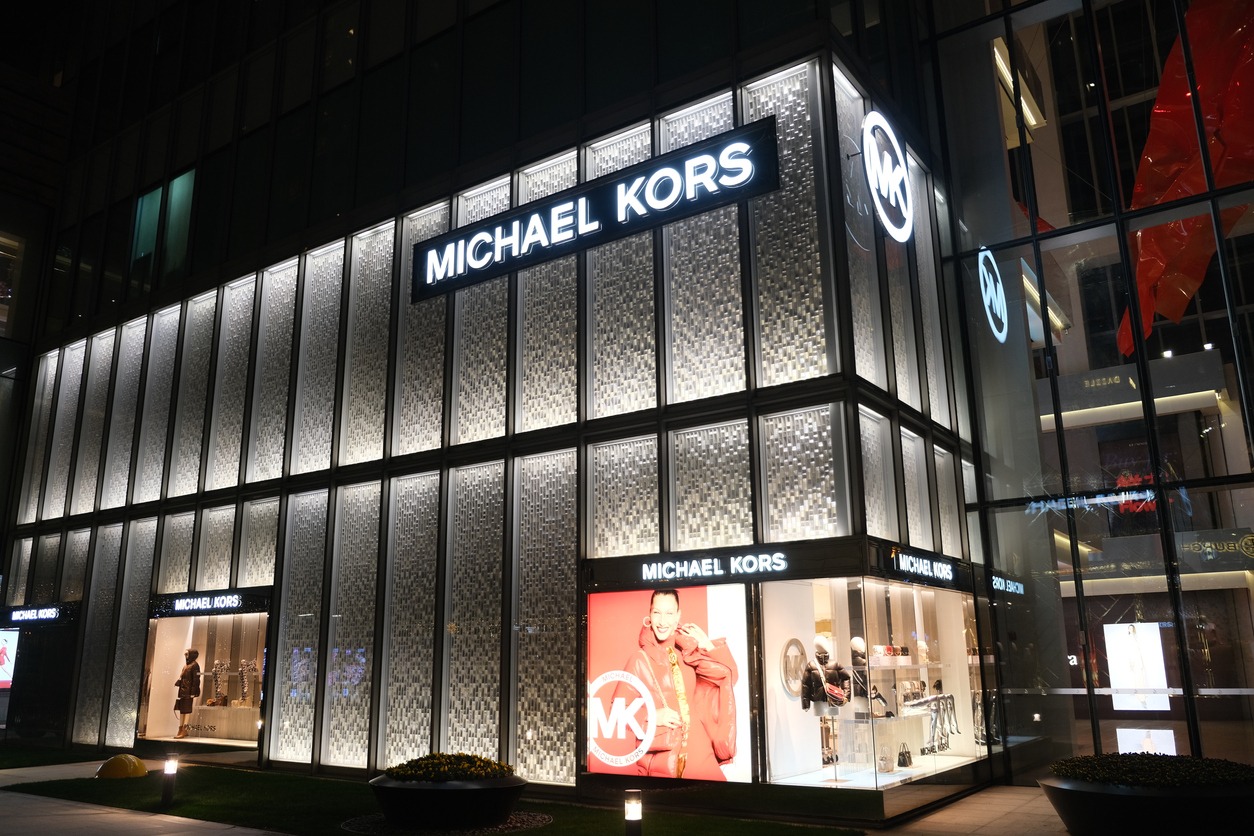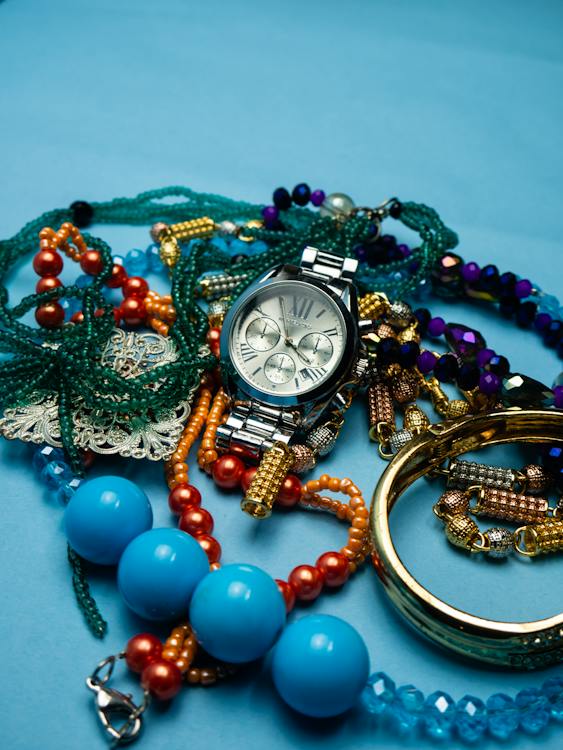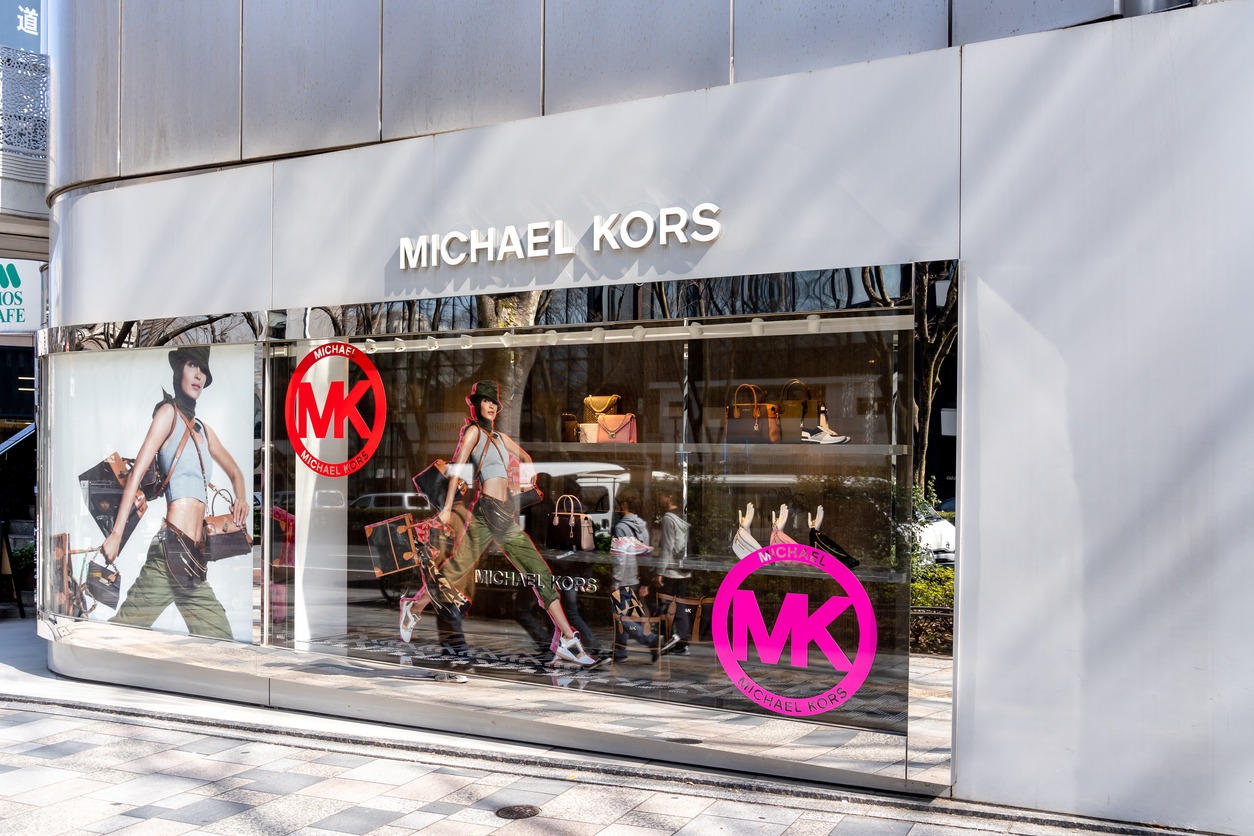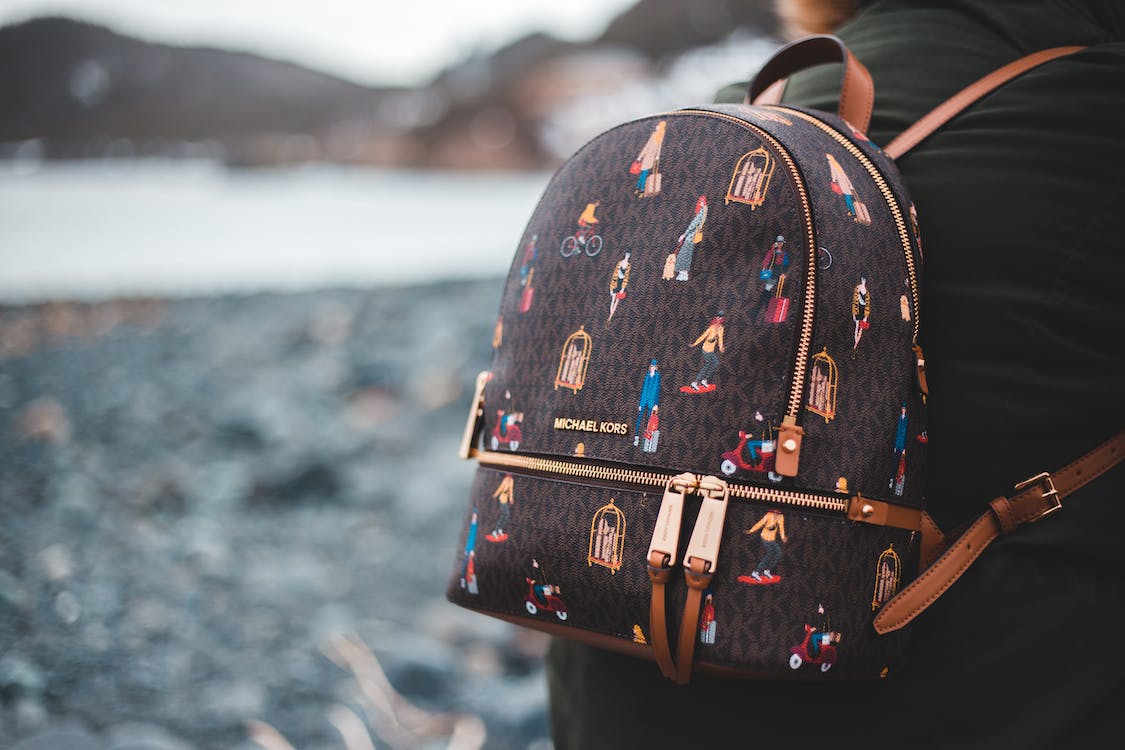The world of fashion has long been dominated by exclusive brands that cater to the upper echelons of society. However, the landscape began to change significantly with the advent of accessible luxury, a concept that has been greatly influenced by designers like Michael Kors. Kors, with his eponymous brand, has been at the forefront of merging high-end fashion with accessibility, thereby democratizing luxury in a way that was previously unimaginable. This blog post delves into Michael Kors’ considerable impact on accessible luxury fashion, examining how his designs, brand philosophy, and business strategies have reshaped the industry.
A Stroll Through Time
In 1981, Michael Kors embarked on a journey to redefine luxury fashion with the launch of his eponymous brand, setting the stage for a new era in the industry. His design philosophy was simple yet revolutionary: to create sophisticated, timeless pieces that embodied effortless chic. Kors’ collections were characterized by their classic lines and neutral color palettes, punctuated with just the right amount of glamour. This unique blend of elegance and accessibility struck a chord with a diverse audience, expanding the reach of luxury fashion beyond the traditional elite to include a broader demographic eager for high-end style in their everyday lives.
Michael Kors’ approach to fashion was not just about aesthetics; it was about making luxury attainable. By focusing on wearable, versatile pieces that could transition seamlessly from day to evening, Kors bridged the gap between opulent couture and practical fashion. This philosophy not only endeared him to style-conscious individuals but also set a precedent in the industry, challenging other designers to rethink the boundaries of luxury fashion. Through his innovative vision, Michael Kors transformed the landscape of fashion, making the luxury experience more inclusive and accessible to all.
Michael Kors – Bridging the Gap in Fashion
Michael Kors has played a pivotal role in transforming the luxury fashion landscape by making high-end fashion more accessible to a broader audience. This approach, often referred to as the democratization of luxury, has reshaped consumer expectations and industry standards alike. Here’s a deeper dive into how Michael Kors has achieved this and the implications it has had on the fashion world.
Accessibility Meets Luxury
At the heart of Michael Kors’ philosophy is the idea that luxury should not be exclusive to the elite. The brand achieves this by offering a spectrum of products that cater to various price points, from high-end designer pieces to more affordable fashion lines. This inclusivity allows individuals from different economic backgrounds to find something within the brand that speaks to their desire for luxury, without compromising on quality or style. The introduction of MICHAEL, Michael Kors, a more accessible line, is a testament to this approach, offering fashion-forward designs at more attainable prices.
The Role of Design and Quality
Democratizing luxury isn’t merely about lowering prices; it’s about maintaining a standard of design and quality that resonates with the luxury market. Michael Kors has mastered this balance, ensuring that even the more accessible pieces reflect the brand’s signature aesthetic and craftsmanship. This commitment to quality ensures that every customer, regardless of the price point they engage with, experiences the essence of luxury that the brand stands for.
Expanding the Luxury Market
By making luxury more accessible, Michael Kors has not only broadened its own customer base but also expanded the overall market for luxury goods. This strategy has introduced luxury fashion to consumers who previously felt alienated by the high price points and exclusivity of luxury brands. As a result, the brand has cultivated a new segment of consumers who aspire to luxury and are willing to invest in high-quality products, thereby fostering a more inclusive luxury market.
Challenging Traditional Norms
Michael Kors’ approach has challenged the traditional barriers within the fashion industry, where a clear line once separated high-end couture from mainstream fashion. By blurring these lines, Kors has sparked a conversation about what luxury fashion can be and who it is for. This shift has encouraged other brands to rethink their strategies, leading to a more dynamic and diverse fashion industry that caters to a wider range of tastes and budgets.
The Impact on Brand Perception
Democratizing luxury has also had a profound impact on how consumers perceive the Michael Kors brand. By offering accessible luxury, the brand is seen as more approachable and relatable, yet it retains its high-end allure. This dual perception has allowed Michael Kors to cultivate a loyal following that spans the spectrum from fashion-forward millennials to seasoned luxury enthusiasts.
Michael Kors’ contribution to democratizing luxury has been transformative, not just for the brand but for the fashion industry at large. By blending high-end couture with accessible fashion, Kors has redefined the boundaries of luxury, making it more inclusive and attainable. This visionary approach has not only enriched the brand’s legacy but also set a new standard for how luxury fashion can embrace a broader audience, fostering a more inclusive and diverse fashion ecosystem.
The Accessory Revolution by Michael Kors
Michael Kors’ strategic emphasis on accessories has been a cornerstone of its mission to democratize luxury. By understanding the unique position accessories hold in the fashion hierarchy, the brand has managed to weave luxury into the fabric of everyday life. Here’s an in-depth look at how accessories have played a pivotal role in the brand’s approach and success.
- The Gateway to Luxury: Accessories by Michael Kors, notably handbags, watches, and shoes, have been designed to act as gateways into the world of luxury for a broader audience. These items, emblematic of the brand’s ethos, offer a taste of luxury without the daunting price tag often associated with high-end fashion apparel. This strategic pricing makes luxury feel within reach, inviting consumers to experience the brand’s signature style and quality.
- Iconic Status of Michael Kors Accessories: Michael Kors accessories have achieved an iconic status in the fashion world, becoming synonymous with accessible luxury. The brand’s handbags, in particular, have garnered a following for their sleek designs, functionality, and the unmistakable logo that adorns them. Watches combine sophistication with practicality, embodying the brand’s commitment to quality and style. Shoes, from elegant heels to chic flats, round out the accessory line, ensuring that the Michael Kors touch can be incorporated into various aspects of an outfit.
- Quality and Design at the Forefront: Despite their more accessible price points, Michael Kors accessories do not compromise on quality or design. Each piece reflects the brand’s attention to detail, from the choice of materials to the craftsmanship that goes into their creation. This commitment ensures that consumers experience the luxury they aspire to, reinforcing the brand’s value proposition and enhancing its appeal.
- The Psychological Impact: The strategic focus on accessories taps into the psychological aspect of luxury consumption. Owning a Michael Kors accessory becomes more than just a fashion statement; it’s an affirmation of personal taste, a badge of sophistication, and, for many, a first foray into the luxury market. This emotional connection fosters brand loyalty and turns occasional shoppers into lifelong customers.
- A Model for the Industry: The success of Michael Kors in the accessory market has set a precedent for other brands aiming to capture the accessible luxury segment. The brand’s approach demonstrates how focusing on accessories can be an effective strategy to expand a brand’s reach and appeal. It shows that luxury can be both aspirational and attainable, broadening the notion of who can participate in the luxury market.
Accessories have been instrumental in Michael Kors’ mission to democratize luxury. By making high-quality, stylish accessories more accessible, the brand has opened the doors of luxury to a wider audience, challenging traditional notions of luxury consumption. This focus on accessories has not only contributed significantly to the brand’s success but has also reshaped the landscape of the fashion industry, making luxury a more inclusive and varied space.
Global Aspirations – Michael Kors’ Strategic Expansion
Michael Kors’ journey from a high-end fashion label to a global powerhouse is a testament to strategic brand expansion and adaptability. This expansion, characterized by diversifying product lines and extending geographic reach, has been pivotal in solidifying Michael Kors as a mainstay in the accessible luxury market. Here’s a closer look at the multi-faceted approach that fueled this global ascendancy.
Diversification through Diffusion Lines
At the forefront of Michael Kors’ expansion strategy is the introduction of diffusion lines, most notably MICHAEL Michael Kors. These lines serve as a bridge between high-end luxury and accessible fashion, offering a range of products from apparel to accessories at more attainable price points. This diversification not only broadened the brand’s appeal but also made luxury more accessible, inviting a wider audience to experience the brand’s signature style.
Strategic Partnerships and Collaborations
Michael Kors has skillfully leveraged partnerships and collaborations to expand its global footprint. These alliances range from celebrity endorsements and influencer collaborations to partnerships with other brands and retailers. Each collaboration is carefully curated to align with the brand’s image while also bringing fresh perspectives and unique offerings to the table. These collaborations not only enhance the brand’s visibility but also introduce Michael Kors to new audiences and markets.
Embracing Digital Marketing and Social Media
Understanding the importance of digital presence in today’s market, Michael Kors has invested heavily in digital marketing and social media strategies. The brand’s adept use of platforms like Instagram, Facebook, and Twitter, along with innovative campaigns such as #JetSetSelma and #WatchHungerStop, has helped it connect with a tech-savvy, younger demographic. These digital initiatives have not only enhanced customer engagement but also driven online sales, making the brand more accessible to consumers worldwide.
Geographic Expansion
Michael Kors’ global reach is also a result of its deliberate geographic expansion. By opening stores in key cities around the world and tailoring offerings to suit regional tastes and preferences, the brand has cultivated a strong international presence. From flagship stores in New York, London, and Tokyo to expanding in emerging markets like China and Brazil, Michael Kors has established itself as a global brand that resonates with a diverse international audience.
Building a Multi-Channel Retail Experience
The brand’s expansion strategy includes a focus on multi-channel retailing, encompassing flagship stores, online platforms, and presence in department stores and multi-brand boutiques. This approach ensures that consumers can experience Michael Kors in various settings, from immersive brand-centric environments to convenient online shopping, further enhancing its global reach and accessibility.
Michael Kors’ strategic expansion and efforts to increase its global reach have been instrumental in transforming the brand into a symbol of accessible luxury worldwide. Through product diversification, strategic collaborations, digital innovation, and geographic expansion, Michael Kors has not only broadened its customer base but also set a benchmark for how brands can successfully navigate the complexities of the global fashion market. This multifaceted approach to growth underscores Michael Kors’ commitment to inclusivity and innovation, ensuring its relevance and appeal across diverse markets and demographics.
Impact on the Industry
Michael Kors’ strategic positioning within the accessible luxury segment has not only elevated the brand but also instigated a paradigm shift within the broader fashion industry. This ripple effect, characterized by a more inclusive approach to luxury fashion, has reshaped industry norms and consumer expectations. Here’s an in-depth analysis of how Michael Kors’ approach has influenced the fashion landscape.
- Expanding Market Horizons: Michael Kors demonstrated that luxury doesn’t have to be synonymous with exclusivity, challenging the traditional business models of many high-end fashion houses. This revelation led to a significant shift in the industry, with established luxury brands beginning to explore the potential of more accessible product lines. By incorporating items at lower price points, these brands have been able to tap into a larger market, extending their reach beyond the traditional luxury consumer base to include aspirational buyers and fashion enthusiasts seeking a taste of luxury.
- Catalyzing Brand Diversification: Inspired by the success of Michael Kors, many luxury brands have diversified their portfolios to include diffusion lines, limited-edition collaborations, and capsule collections at more accessible price points. This strategy not only broadens the brand’s appeal but also introduces the luxury experience to a wider audience, fostering a sense of inclusivity. Brands have come to recognize the strategic value in offering a spectrum of products that cater to diverse consumer segments, from high-net-worth individuals to middle-class aspirants seeking entry into the world of luxury.
- Influencing Design Philosophy: Michael Kors’ impact extends beyond business models to influence the very design philosophy of luxury fashion. The brand’s blend of timeless elegance with contemporary trends has set a new standard for what accessible luxury can look like. This approach has encouraged other designers to rethink their creative direction, leading to more versatile and wearable luxury collections that resonate with a broader audience. The industry has seen a shift towards designs that balance aesthetic appeal with practicality, making luxury fashion more relevant to everyday life.
- Inspiring a New Generation of Designers: The success of Michael Kors has been a beacon for emerging designers and new brands, showcasing the viability of an accessible luxury approach. This new generation is more attuned to the dynamics of the modern market, where inclusivity, diversity, and accessibility are key. They are crafting brands that embody these principles from the outset, further blurring the lines between luxury and mainstream fashion and enriching the industry with fresh perspectives and innovative ideas.
- Fostering Industry Collaboration: Michael Kors’ foray into accessible luxury has also highlighted the benefits of collaboration within the industry. From high-end designers partnering with fast-fashion retailers to luxury brands teaming up with tech companies, the industry has embraced collaboration as a tool for innovation and market expansion. These partnerships have become a strategic way to infuse luxury with new energy and reach, inspired by the inclusive ethos championed by Michael Kors.
Navigating the Waters of Accessible Luxury – The Michael Kors Dilemma
Michael Kors’ journey in democratizing luxury fashion has been marked by notable achievements and widespread acclaim. However, this path has also been strewn with challenges and criticisms that have sparked debate within the fashion industry. Here’s a closer look at the complexities of Michael Kors’ approach and the strategies employed to address these concerns.
The Luxury Paradox
One of the primary criticisms faced by Michael Kors centers around the luxury paradox: the balance between accessibility and exclusivity. As the brand became more ubiquitous, with its products available in numerous outlets and at various price points, some critics argued that this accessibility diluted the brand’s luxury appeal. The essence of luxury fashion has traditionally been rooted in exclusivity and rarity, and there’s a perception that widespread availability undermines this principle, potentially eroding the brand’s high-end image.
Quality in the Face of Mass Production
Another challenge for Michael Kors has been maintaining the high standard of quality and craftsmanship expected of a luxury brand amidst rapid expansion and mass production. As the brand scaled up its operations to meet growing demand, skeptics raised concerns about the potential compromise on quality. In the luxury market, where consumers pay a premium for superior craftsmanship, any perceived decline in quality can significantly impact the brand’s reputation and desirability.
Strategic Adaptations and Innovations
In response to these challenges, Michael Kors has implemented several strategic measures to safeguard the brand’s luxury status while embracing its philosophy of accessibility. The brand has made concerted efforts to ensure that quality remains paramount, investing in materials, craftsmanship, and design innovation to maintain the high standards that consumers expect from a luxury brand. By continually refreshing its collections and infusing them with innovative designs and luxury detailing, Michael Kors has worked to keep the brand at the forefront of fashion.
Curating Exclusivity
To address the issue of exclusivity, Michael Kors has adopted a tiered product strategy, offering a spectrum of collections that cater to different segments of the market. The brand’s high-end runway collection, Michael Kors Collection, remains highly exclusive, featuring luxurious materials and sophisticated designs. This tiered approach allows the brand to maintain a sense of exclusivity within its premium lines while still offering more accessible products through its MICHAEL Michael Kors line and other accessible segments.
Engaging with the Community
Michael Kors has also focused on building a strong community around the brand, leveraging social media and digital marketing to engage directly with consumers. By fostering a sense of belonging and loyalty among its customer base, the brand has cultivated a dedicated following that values the brand beyond its products, appreciating the lifestyle and values that Michael Kors represents.
The journey of Michael Kors in the landscape of accessible luxury illustrates the delicate balance between inclusivity and exclusivity, quality and quantity. While challenges and criticisms are part and parcel of navigating this complex terrain, Michael Kors’ strategic adaptations and commitment to its core values have enabled the brand to maintain its prestige and appeal. Through continuous innovation, a commitment to quality, and a nuanced understanding of the luxury market, Michael Kors continues to thrive, proving that accessible luxury can indeed be both aspirational and attainable.
Legacy and Future
Michael Kors has carved out a distinctive legacy within the fashion industry, redefining the contours of luxury to make it more inclusive and accessible to a wider audience. His approach has not only democratized luxury fashion but also set new benchmarks for what it means to be a luxury brand in the modern era. Looking ahead, Michael Kors is poised to continue its trajectory of innovation and growth, guided by a commitment to sustainability and cutting-edge design.
- Cementing a Legacy of Inclusivity: Michael Kors’ legacy is characterized by a profound shift in how luxury fashion is perceived and consumed. By breaking down the barriers that traditionally separated high-end luxury from the mainstream market, Kors has broadened the horizons of the fashion industry, inviting a diverse array of consumers to experience luxury. This inclusive philosophy has transformed luxury fashion from an exclusive club to a more democratic space where style and quality are accessible to many.
- Embracing Sustainability: As the brand moves forward, sustainability has emerged as a key focus area, reflecting a growing awareness within the industry of the importance of environmentally responsible practices. Michael Kors is actively incorporating sustainable materials and practices into its collections, striving to reduce its environmental footprint while still delivering the high-quality, stylish products that consumers expect. This commitment to sustainability is likely to play a significant role in shaping the brand’s future offerings and operations.
- Innovating for Tomorrow: Innovation remains at the heart of Michael Kors’ strategy for the future. Whether through the integration of new technologies in design and manufacturing, the exploration of novel materials, or the adoption of digital tools to enhance the customer experience, the brand is continuously looking for ways to innovate. This forward-thinking approach ensures that Michael Kors stays relevant in a rapidly evolving fashion landscape, meeting the changing needs and expectations of its global customer base.
- Staying True to Core Values: Despite these innovations and shifts in focus, Michael Kors remains committed to its core philosophy of accessible luxury. This guiding principle has been the foundation of the brand’s success and will continue to inform its strategies and collections. By maintaining this balance between luxury and accessibility, Michael Kors ensures that its products remain desirable and attainable for consumers around the world.
Conclusion
Michael Kors stands as a pivotal figure in the fashion industry, having masterfully redefined the essence of luxury to be more inclusive and accessible to a wider audience. His visionary approach has not only elevated the stature of his eponymous brand but has also influenced the broader contours of the luxury fashion landscape. By seamlessly blending high-end glamour with everyday practicality, Kors has introduced a new paradigm of accessible luxury that resonates with consumers across the globe. As the industry continues to evolve, the foundational principles laid down by Michael Kors—of democratizing luxury while maintaining elegance and quality—promise to have a lasting impact on the future directions of fashion design and brand philosophy.





